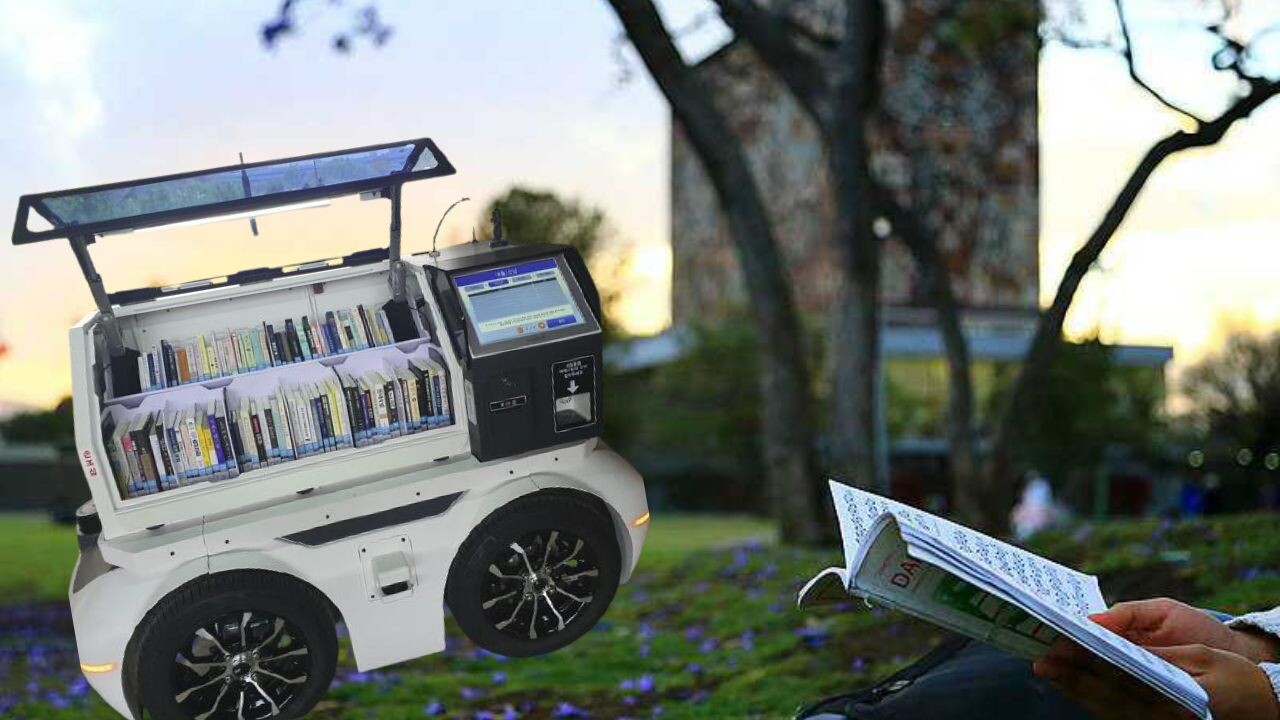
I love reading books and that’s why I have a membership card for my city’s public library. Do I visit it often? No, I don’t. I’m normally too busy or lazy to leave the house just for that.
For the same reasons, I have a stash of books that I did manage to borrow from the library, which I return long after the due date and end up paying some pretty big fines.
But what if I could have access to books while strolling around the city to get a coffee or something? That’d definitely make it easier.
So it’s too bad that I’m not living in Seongnam City in South Korea, where self-driving library robots will be demonstrated on November 19.

Loaded up with 100 books, the autonomous bot will move along a 180m path across the Tancheon Park promenade.
Anyone with a membership card issued by the Seongnam City Public Library can borrow up to two books and return them within two weeks to the designated return boxes installed on the promenade.

Although a self-driving vehicle isn’t allowed to operate on sidewalks or crosswalks, and neither within parks if it weighs more than 30kg, the Ministry of Trade, Industry and Energy has granted an exception to Seongnam City and approved the robot’s promotion as a regulatory special case for demonstration.
The city plans to run a pilot operation at Tancheon promenade and Yuldong Park by 2024, and then expand and operate library robots throughout the city, including neighborhood parks, residential areas, and apartment complexes by 2030.
Smart libraries are also a thing in South Korea
In October, Seoul Metropolitan Library, operated by Seoul City, opened an automated library at the subway station City Hall.
With over 1,000 books, it’s the country’s largest smart library, designed to make book rental services easy, accessible, and safe, especially amid the pandemic.

In the press release, the Chief Librarian of the Seoul Metropolitan Library noted:
We will keep expanding contact-free services. Also, to promote reading culture across the city, we will provide the best environment where citizens can borrow books all year round.
Promoting libraries and reading culture in a digitalized era is challenging, to say the least.
Data released by Statistics Korea in September showed that, in 2020, the average number of visitors per library was down 69.5% year-on-year and the number of loaned books decreased 14.8%.
And my guess is that the numbers are unlikely to go up in the future.
So, perhaps South Korea has got it right and the use of automated book rental services, such as smart libraries or self-driving robots, can contribute to the promotion of reading actual books.
And personally, I can’t wait to see a cute library bot strolling across my street.
Get the TNW newsletter
Get the most important tech news in your inbox each week.





